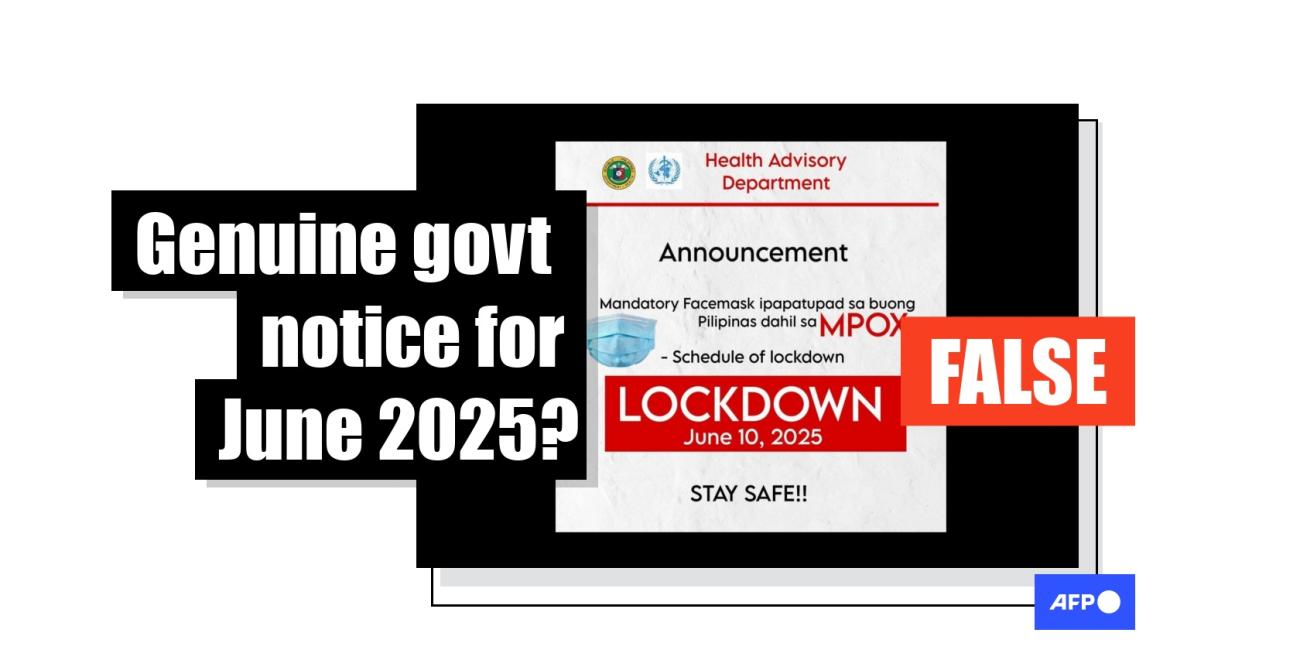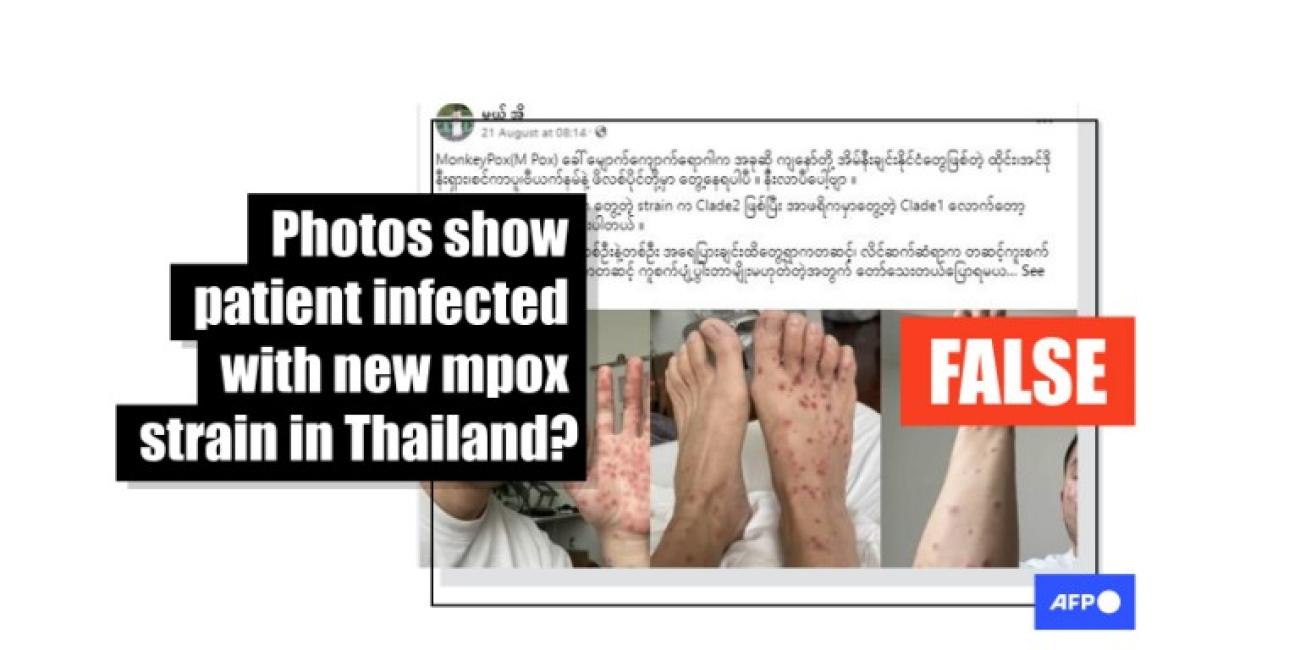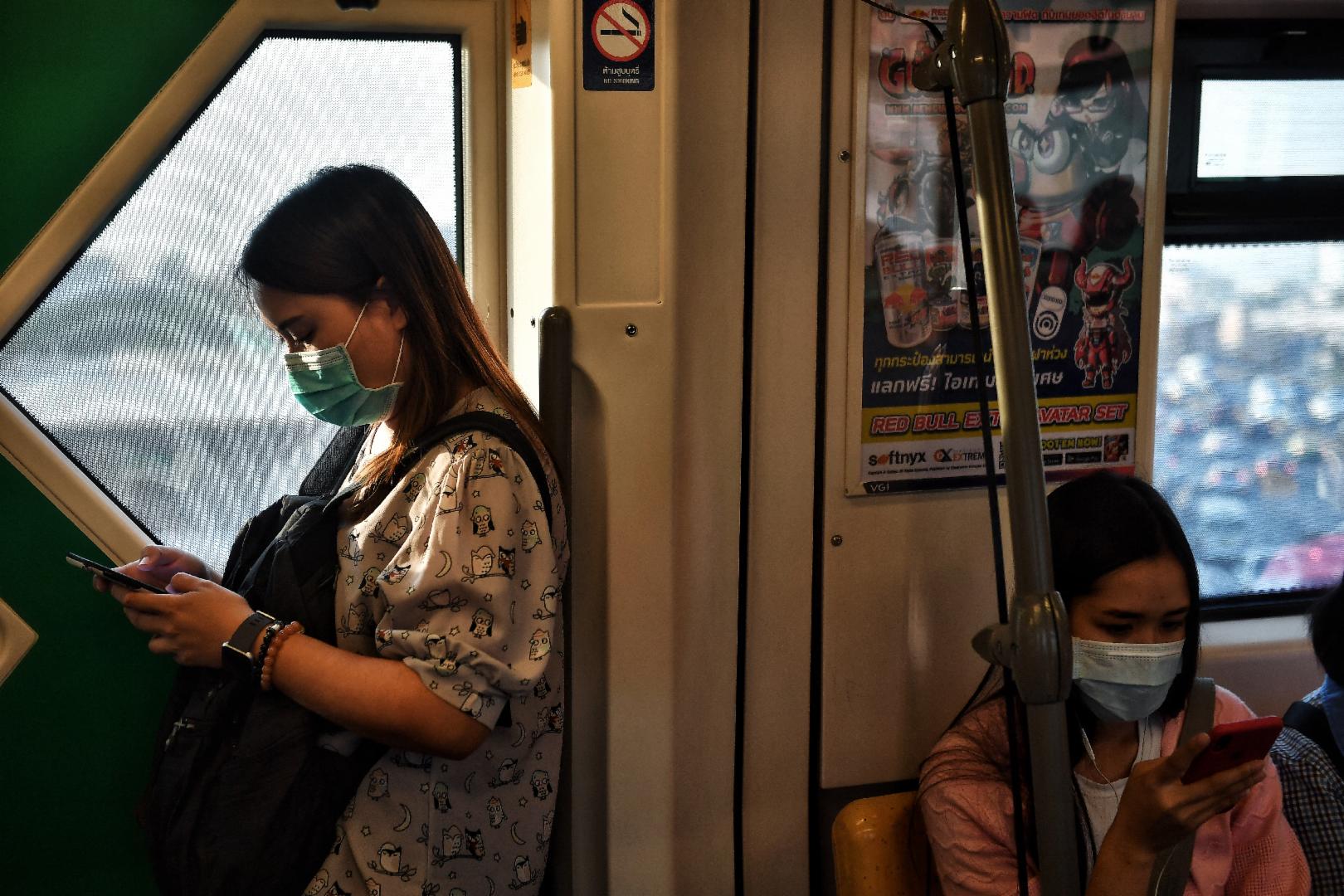
Social media posts share false claim about monkeypox cases in Thailand
- This article is more than three years old.
- Published on June 7, 2022 at 11:19
- Updated on June 7, 2022 at 11:38
- 3 min read
- By Montira RUNGJIRAJITTRANON, AFP Thailand
The claim was shared here on Facebook on May 26, 2022.
The post's Thai-language caption translates to English in part as: "Thailand reported nine cases of monkeypox. They work in the island's national park. The carrier of the disease is the mosquito that bit the monkey, and then later bit humans. It is so scary. Channel 7 reported."
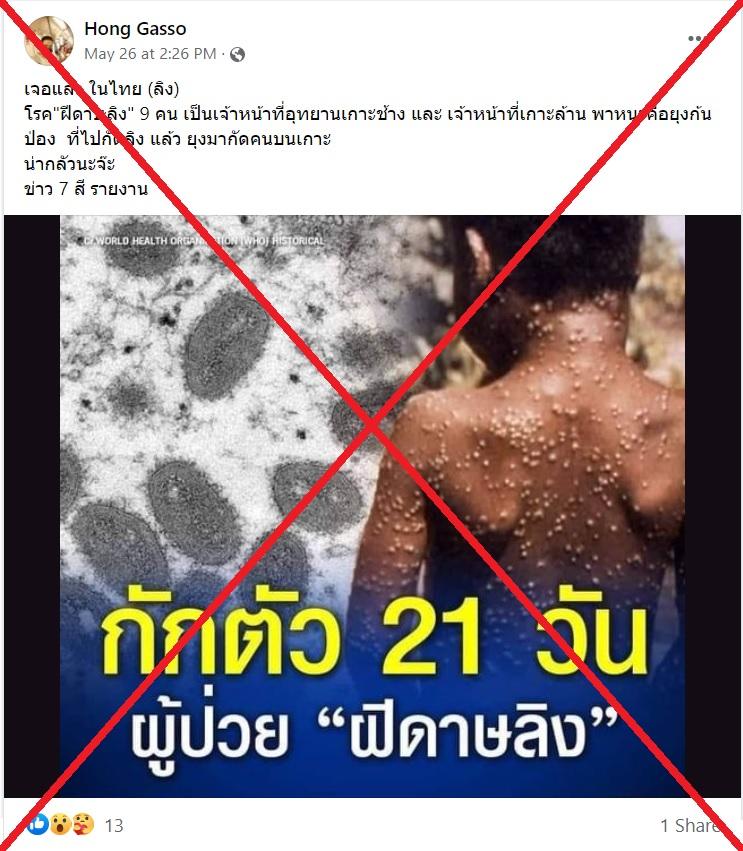
Channel 7 is a TV network in Thailand.
The post includes an image that appears to be an infographic from a news report. It carries a picture of a child with bumpy skin and text that reads: "21 days of quarantine for monkeypox patients."
A similar claim has been shared here and here on Facebook, alongside similar graphics.
The image circulated as cases of monkeypox were detected around the world, including in the United Kingdom, Spain and Portugal.
However, the claims are false.
Monkeypox cases
The Head of the Bureau of Epidemiology Chakkarat Pittayawonganon told AFP: "The claim is not true."
"As of June 6, there are no monkeypox patients in Thailand," he said.
The agency also published this statement on Facebook on June 6, 2022, saying that the kingdom had recorded no monkeypox infections as of June 5.
Mu Koh Chang National Park, which was mentioned in the misleading post, also refuted the claim, calling it "false" on May 27, 2022.
In a Facebook post, it said: "According to a post shared online, there were nine cases of 'monkeypox' patients in the Koh Chang National Park area. We are pleased to inform the public that such information is false. In fact, one of our staff has been diagnosed with Nousai malaria."
Nousai malaria transmits from monkeys to humans via the Anopheles mosquito, according to the country's vector-borne diseases prevention and control programme, which operates under the Ministry of Public Health of Thailand.
Monkeypox transmission
The monkeypox virus is transmitted from one person to another by close contact with lesions, body fluids, respiratory droplets or contaminated materials such as bedding.
Symptoms of concern include headache, fever, chills, sore throat, malaise, fatigue, rash, and swollen glands.
The incubation period of monkeypox can be up to 21 days, according to the World Health Organization and the Infectious Disease Association of Thailand.
Pokrath Hansasuta, an assistant professor of virology at Thailand’s Chulalongkorn University, told AFP: "If you have an unusual rash and fever, please isolate as soon as possible and go to the doctor."
He added: "If you have been diagnosed with monkeypox, let people you have interacted with know as soon as possible."
News graphic
Reverse image searches found the image shared in the misleading post appeared in this report by Thailand's Channel 7 on May 23, 2022.
The article talks about Belgium's quarantine measure for monkeypox patients.
The article's headline reads: "Belgium to quarantine monkeypox patients for 21 days".
In the original image, the logo of the TV network Channel 7 can be seen on the bottom-right corner.
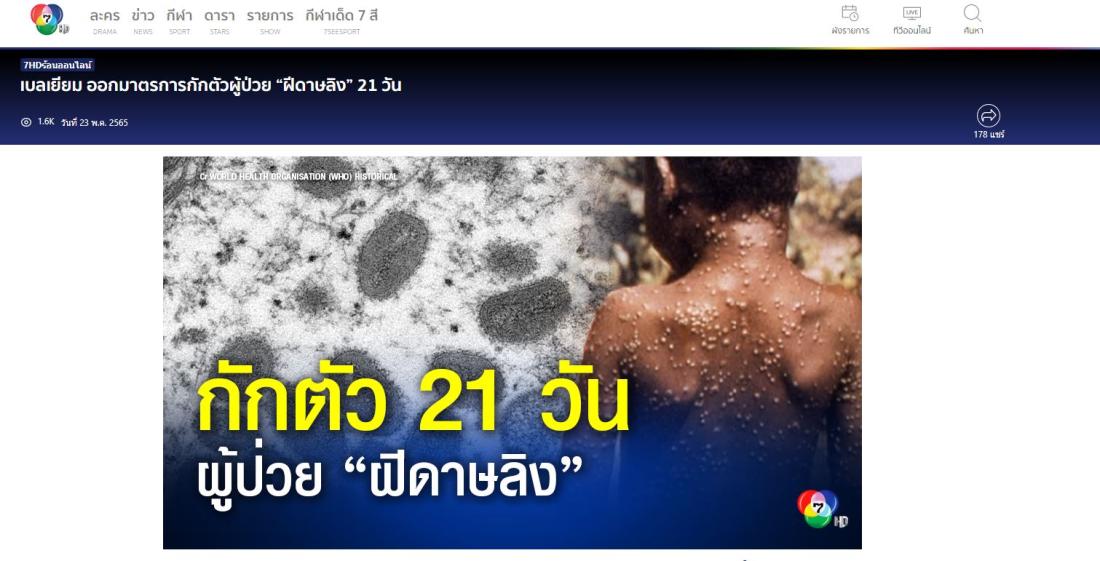
AFP ran a subsequent reverse image and keyword search and found the two images included in the Channel 7 graphic were shared in articles about monkeypox from the Reuters news agency and the US Centers for Disease and Control.
Narach Pattarapunnachote, chief editor of Channel 7's online edition told AFP: "Channel 7 has never reported news about a monkeypox case detected in Thailand."
As of June 6, AFP found no credible reports or statements about monkeypox cases in Thailand.
June 7, 2022 This article was updated to mention in the first paragraph that the monkeypox virus is spread through close contact with an infected person.
Copyright © AFP 2017-2026. Any commercial use of this content requires a subscription. Click here to find out more.
Is there content that you would like AFP to fact-check? Get in touch.
Contact us
